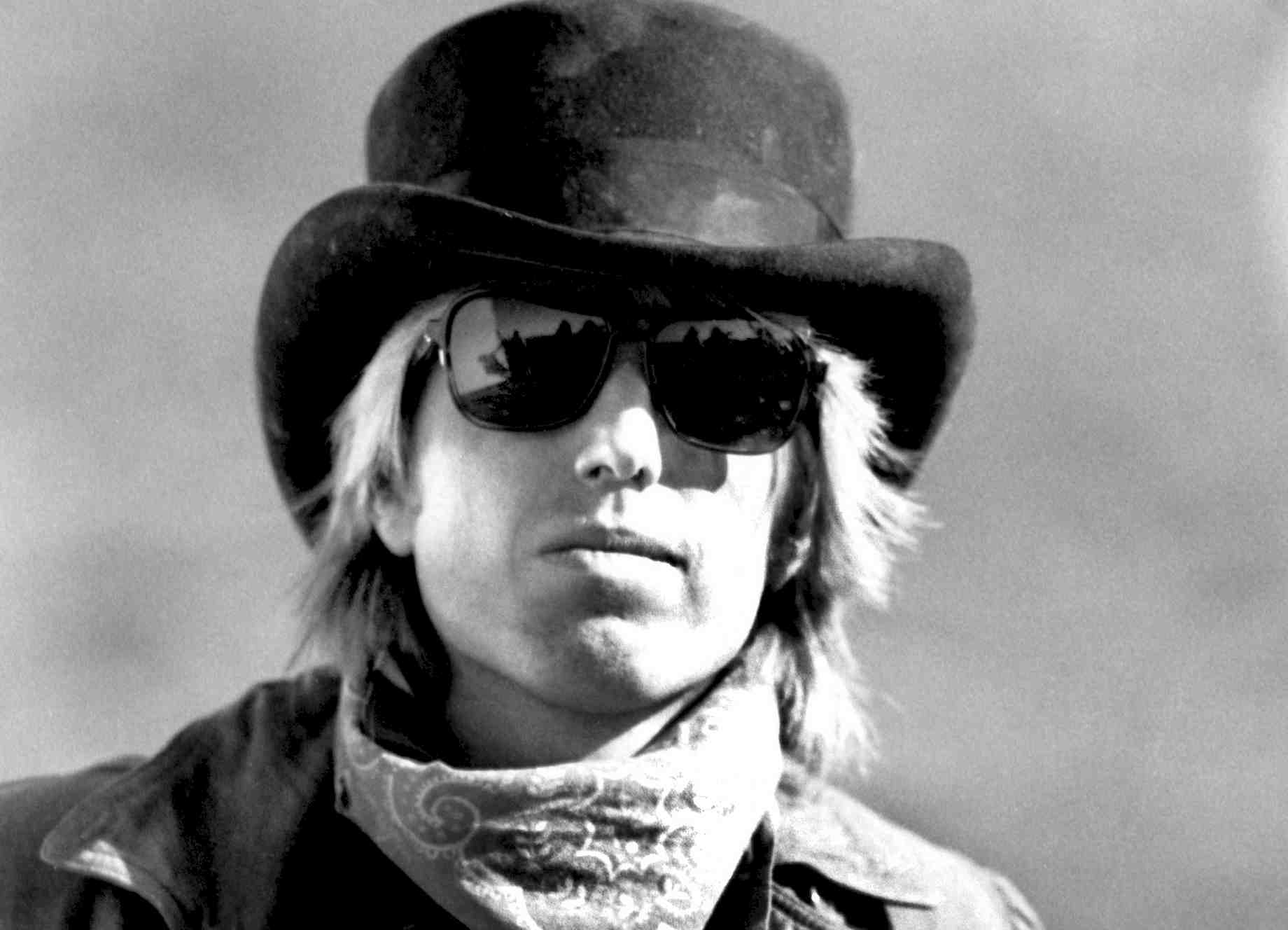Tom Petty’s music career is a masterclass in creative entrepreneurship. From his early days with the Heartbreakers to his legendary solo work, Petty not only wrote timeless songs that resonated with millions, but he also built a career that exemplified savvy business decisions, a refusal to compromise his artistic vision, and a deep understanding of the changing dynamics of the music industry. As we examine his legacy, it becomes clear that Petty's journey offers valuable lessons for those navigating today’s music business and entrepreneurial landscapes.
The Fight for Artistic Integrity
One of Tom Petty’s most notable business victories came during a time when most artists of his era were focused on making hits. In the late 1970s, Petty found himself in a fierce battle with his record label. After his label, Shelter Records, was sold to MCA, Petty refused to be “bought and sold like a piece of meat,” leading him to file for bankruptcy as a form of protest. His refusal to let the corporate machine dictate the terms of his career is now legendary. Eventually, Petty was able to negotiate a better deal, maintaining control over his music. This kind of boldness, where an artist stands up for their rights and their creations, should be a foundational lesson for every aspiring music entrepreneur.
Takeaway for Today’s Artist: Petty’s battle with MCA records teaches us that artists can – and should – fight for their creative freedom. In a time when artists are encouraged to sign over rights and revenue streams for short-term gains, Petty’s example serves as a reminder that holding firm to your principles can yield both artistic and financial success in the long run. This is a lesson in not compromising for quick victories but focusing on building a sustainable career on your terms.
The “Damn the Torpedoes” Moment: Betting on Yourself
The release of the album Damn the Torpedoes is often cited as the moment that catapulted Tom Petty and the Heartbreakers to superstardom. But behind this iconic album is a story of entrepreneurial risk-taking. After the legal struggles with MCA, Petty was left with a crucial decision: go big or go home. The band poured everything into Damn the Torpedoes, a record filled with some of Petty’s most enduring hits like "Refugee" and "Here Comes My Girl." They bet on themselves, with Petty’s relentless work ethic and belief in the music fueling the effort. The gamble paid off. The album went triple platinum, firmly establishing Petty as one of rock’s greats.
Entrepreneurial Lesson: In today’s fast-paced, digital-first music industry, betting on oneself remains essential. Whether it's producing and distributing an album independently or harnessing digital tools to connect directly with audiences, modern musicians must approach their careers like entrepreneurs. Petty’s leap with Damn the Torpedoes is akin to launching a startup, where risks are high but the rewards can be transformative.
Building a Legacy Through Partnerships
Tom Petty wasn’t just a rock star; he was also an astute collaborator who understood the value of building a network of creative alliances. The formation of The Traveling Wilburys in 1988 is a testament to his collaborative spirit. Joining forces with industry legends like Bob Dylan, George Harrison, Roy Orbison, and Jeff Lynne, Petty embraced the opportunity to work with peers who could challenge and inspire him. The band’s eclectic and experimental nature allowed him to stretch beyond his established sound while sharing the workload and amplifying their collective influence.
Transferable Insight for Today’s Music Entrepreneurs: Petty's ability to collaborate with diverse artists offers an important takeaway for musicians and entrepreneurs today. Whether in music or business, partnerships allow for creative synergy, diversification of skills, and access to new audiences. In our UF Music Business & Entrepreneurship program, we encourage students to seek out collaboration, just as Petty did, viewing each partnership as an opportunity to learn, grow, and expand their reach.
"Learning to Fly" and the Art of Adaptation
One of Petty's most beloved songs, "Learning to Fly," is a poignant reflection of growth, resilience, and adaptation. These themes are also central to his career. As the music industry underwent seismic shifts with the rise of digital platforms, Petty navigated these changes with wisdom. He embraced new technologies while still remaining true to his roots. His later career, which included solo albums and concert tours, was marked by a clear understanding of his brand and his audience. Even in the face of an ever-changing industry, Petty stayed true to his core values while adapting to survive and thrive.
Entrepreneurial Flexibility: Today’s music professionals must learn to adapt in a similar way, navigating streaming platforms, social media algorithms, and the gig economy with the same openness to change that Petty embodied. Flexibility is key. Just as Petty didn’t shy away from experimenting with different sounds and formats, musicians and entrepreneurs today must remain open to innovation while staying true to their identity.
Connecting Tom Petty's Legacy to UF Music Business & Entrepreneurship Program
Tom Petty’s contributions to both music and business go beyond his personal victories; they provide a roadmap for future generations of music entrepreneurs. At the University of Florida’s School of Music, our Music Business & Entrepreneurship program seeks to embody the same principles that guided Petty's career: artistic integrity, entrepreneurial spirit, collaboration, and adaptability.
This year’s inaugural UF Music Business & Entrepreneurship Summit, founded and directed by multi-GRAMMY® Winning associate professor and MBE Program Coordinator, Dr. José Valentino Ruiz, will feature numerous GRAMMY® Award-winning artists, producers, and music executives, offering students firsthand insights into the very challenges and opportunities Petty faced. This event also reflects Petty’s legacy of creative collaboration, with representation from across the UF School of Music, the Center for Arts, Migration, and Entrepreneurship (CAME), Jim & Sharon Theriac Foundation, and the Gator Music Industry Club (Gator MIC). It’s particularly fitting that part of the Summit is sponsored by the Tom Petty Endowment for Guitars and Innovation, a symbol of Petty’s enduring impact on the next generation of musicians and entrepreneurs.
One of the highlights of this year’s summit is the guest appearance of Renesito Avich, a 2022-2023-2024 Latin GRAMMY® Award-nominated Cuban tres artist and producer. Avich, whose expertise in digital content creation and strategy for global opportunities mirrors Petty’s own understanding of global reach, will lead workshops that provide students with practical tools to navigate the digital arts commerce industry—just as Petty adapted to the evolving music industry in his time. Additionally, Avich’s lecture recital on the Cuban Tres will offer valuable lessons on the importance of understanding cultural context, musical heritage, and innovation—qualities Petty championed throughout his career.
Final Thoughts: Learning from Petty, Building the Future
As we reflect on Tom Petty's legendary career, we see a blueprint for the modern music entrepreneur. His battles for creative freedom, his ability to bet on himself, his skill in forming strategic partnerships, and his knack for adapting to industry changes are all lessons that remain deeply relevant in today’s music business. At UF’s School of Music, we are committed to passing down these lessons to the next generation of musicians and entrepreneurs.
The UF Music Business & Entrepreneurship Summit (Oct. 1-4, 2024) is a testament to this mission, drawing inspiration from Petty’s legacy while looking toward the future of the music industry. Just as Tom Petty once sang, “You can stand me up at the gates of hell, but I won't back down,” we hope our students will embody that same spirit of resilience, passion, and entrepreneurial ambition as they navigate their own careers in music.
Click here to find out more about the author:
José Valentino Ruiz-Resto, Ph.D., D.Min., D.B.E. (“José Valentino”)
Associate Professor, School of Music
Affiliate Faculty, Center for Arts, Migration, and Entrepreneurship
Artistic Director of 2024 Music, Business, and Entrepreneurship Summit



